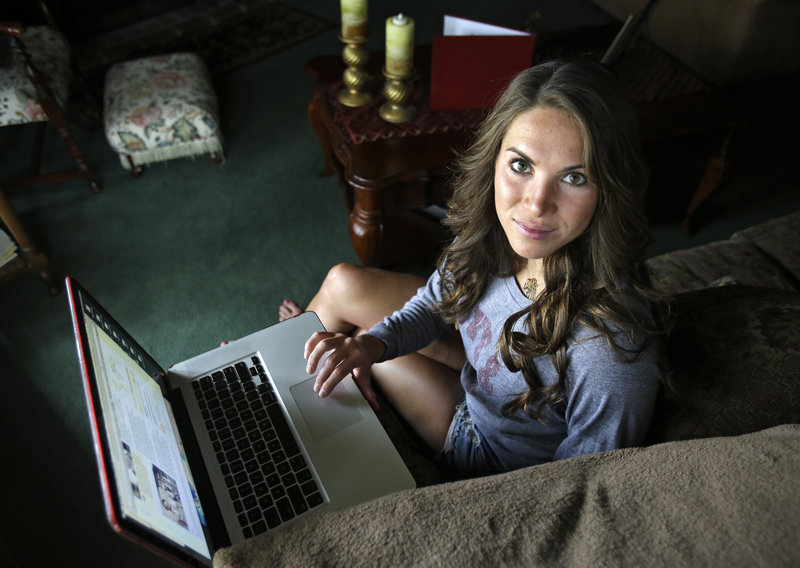CHICAGO – The generation that’s grown up posting their lives online wants a little privacy.
That’s not what we might expect as we debate just how much access the government should have to our mobile and online lives.
But as it turns out, young people are much more complex than some may think when determining what personal information they want to share.
Sure, they’re as likely as ever to post photos of themselves online, as well as their location and even phone numbers — and assume that at least some of their information is shared among website providers — say those who track their high-tech habits. But as they approach adulthood, they’re also getting more adept at hiding and pruning their online lives.
Despite their propensity for sharing, many young adults also are surprisingly big advocates for privacy — in some cases, more than their elders.
That attitude showed up most recently in a poll done over the weekend for the Pew Research Center for the People & the Press and The Washington Post.
The poll, tied to the disclosure of broad federal surveillance, found that young adults were much more divided than older generations when asked if the government should tread on their privacy to thwart terrorism.
Fifty-one percent of young adults, ages 18 to 29, said it was “more important for the federal government to investigate possible terrorist threats, even if that intrudes on personal privacy.”
But 45 percent said personal privacy was more important, even if it limited the ability to investigate possible terrorist threats.
In contrast, less than a third of adults, age 30 and older, told pollsters that preserving personal privacy was more important, while about two-thirds placed higher value on permitting terror investigations, regardless of privacy infringement.
The young adults were much more in line with their elders when asked about the government monitoring specific modes of communication. Pollsters found that a slight majority of adults — including 18- to 29-year-olds — said it was “acceptable” for the government to secretly obtain phone call records.
But a similar slight majority also said it was “unacceptable” for the government to monitor everyone’s emails and online activity. In an AP-NORC Center survey conducted around the 10th anniversary of the Sept. 11, 2001, terrorist attacks, those younger than age 30 also were most likely to oppose several different means of government surveillance, from emails to phone calls.
It should be noted that the details about surveillance techniques used by the National Security Agency were still emerging as the weekend Pew poll was being done.
“The big insight here is that younger adults are not indifferent to privacy, as many seem to believe,” says Lee Rainie, director of the Pew Internet & American Life Project, which is affiliated with Pew Research Center for the People & the Press.
It also fits with a report that Rainie’s staff recently issued on social media, privacy and adolescents, ages 12 to 17.
They found that 91 percent of youths in that age bracket said they post photos of themselves on social networking sites, up from 79 percent in 2006, the last time this survey was done. Just over 70 percent post where they live, up from 61 percent. And 20 percent post their cell numbers, up from 2 percent.
This time, researchers also asked about security and found that 60 percent of youths said they set their social networking profiles to private and were confident about keeping control of those settings. A similar proportion of young respondents said they’d also deleted some of their previous posts, blocked people from their social networking accounts and cloaked their messages with inside jokes or obscure references that only their friends would understand.
Mandi Grandjean, a recent graduate of Miami University in Ohio, says she’s fine with the federal government doing secret surveillance of phone call records and Internet exchanges to combat terrorism, but “with congressional oversight.”
“I was in sixth grade when 9/11 happened — and the world changed,” she said. “I am personally not a fan of big government, but I understand there are needs for security.”
But even she believes it’s different when it comes to an employer, or even a coach. She was an athlete at Miami and had to agree to have her social networking accounts monitored by her coaches.
She recalls one time, when she tweeted something on her locked Twitter account at midnight. Shortly after, her coach texted her: “Go to bed.”
“I think there’s a line,” Grandjean said. “It puts me on edge.. It’s a little too close for comfort.”
The Pew Research Center for the People & the Press/Washington Post poll was conducted by telephone June 6-9 with a random sample of 1,004 adults, age 18 and older. The margin of error is plus-or-minus 3.7 percentage points.
Send questions/comments to the editors.



Success. Please wait for the page to reload. If the page does not reload within 5 seconds, please refresh the page.
Enter your email and password to access comments.
Hi, to comment on stories you must . This profile is in addition to your subscription and website login.
Already have a commenting profile? .
Invalid username/password.
Please check your email to confirm and complete your registration.
Only subscribers are eligible to post comments. Please subscribe or login first for digital access. Here’s why.
Use the form below to reset your password. When you've submitted your account email, we will send an email with a reset code.